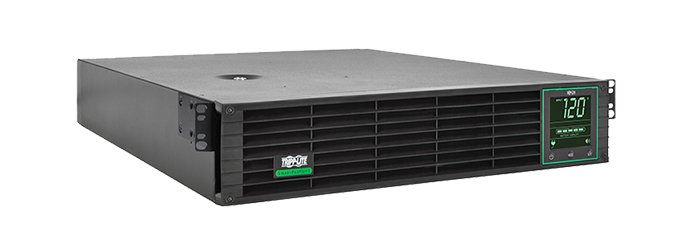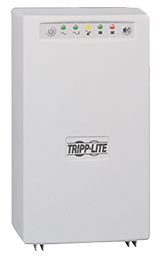
Let’s talk about lithium-ion batteries, how they differ from sealed lead-acid batteries, and why lithium-ion UPS batteries are a better solution to safely protect applications such as electric cars, cell phones, computers and medical devices.
The Drawbacks to Lead-Acid UPS Batteries
Most UPS systems contain either sealed lead-acid batteries (also referred to as SLA batteries) or lithium-ion batteries. Although they are inexpensive, SLA batteries have several limitations. Typically, SLA batteries are heavier, require more technician time to maintain, and require more frequent replacement than lithium-ion UPS battery options.
Why Choose a Lithium-Ion UPS Battery?
Although lithium-ion UPS systems have been around for decades, most people have been hesitant to choose this option because they were more expensive. With the onset of advanced battery technology, lithium-ion UPS systems have become much more attractive due to reduced pricing that rivals most standard, lead-acid battery UPS systems.
Select UPS systems feature a state-of-the-art lithium iron phosphate (LiFePO4) internal battery with longer life, more cycles and faster recharge rates. This battery more than doubles the service life of an equivalent lead-acid battery, and offers up to three times more charge/discharge cycles. It recharges to 100-percent capacity in less than two hours, making the lithium-ion UPS system an ideal battery backup solution in case of a power outage.

In addition, LiFePO4 batteries are lighter than an equivalent lead-acid battery, which reduces the overall UPS weight for applications where network devices such as servers and switches can maximize the network rack weight capacity.
Top 4 Features of Lithium-Ion UPS Batteries
- Discharge Rate: Lithium-ion batteries deliver consistent battery backup throughout the discharge cycle and have a much shorter battery backup discharge rate than standard, lead-acid battery UPS systems.
- Longevity: Under most conditions, lithium-ion batteries have 5 to 10 times the discharge cycle of SLA batteries. The typical lifespan of lithium-ion batteries is 8 to 10 years compared with SLA batteries which last 3 to 5 years. As a result, lithium-ion batteries need to be replaced much less frequently, which reduces maintenance time and cost.
- Temperature: Temperature also effects battery performance. Lithium-ion batteries outperform SLA batteries at most temperatures and also outperform SLA batteries as the temperature gap widens. This helps maintain optimal network device efficiency and greatly reduces cost over time.
- Weight: Lithium-ion batteries are substantially smaller and lighter than lead-acid batteries, which is critical in mobile applications such as mobile medical carts.

Even though lithium-ion UPS systems have historically been more expensive than traditional, lead-acid battery UPS systems, the overall cost has dropped substantially and continues to drop due to improvements in battery technology. That being said, lithium-ion UPS systems offer a much greater return on investment (ROI) when it comes to battery backup maintenance, equipment damage, data loss and potential downtime due to power outages.
If you’re considering a UPS system with a lithium-ion battery, consider the following options for your specific application.





